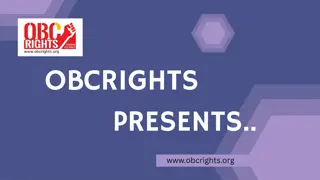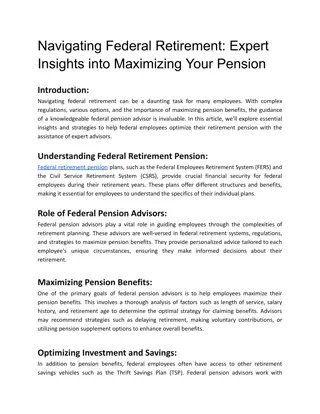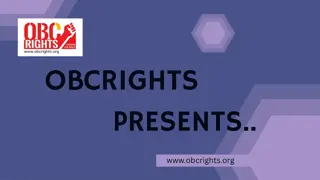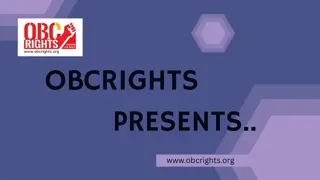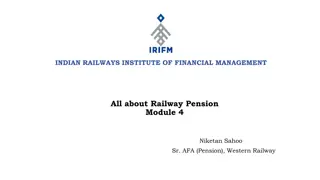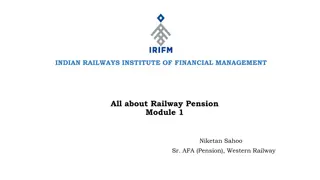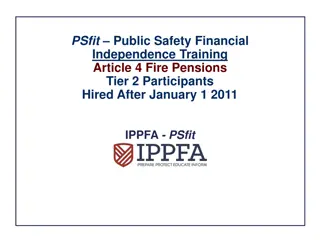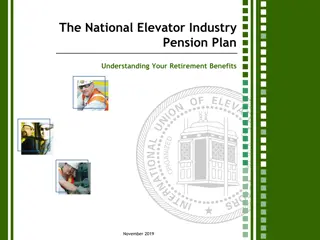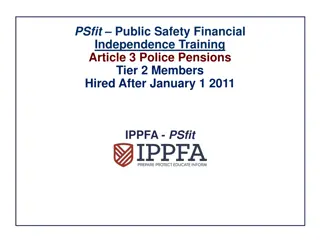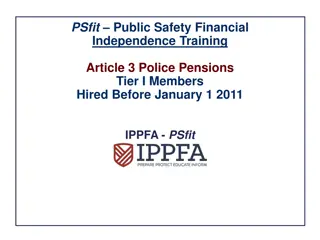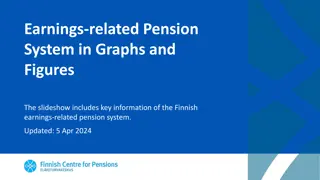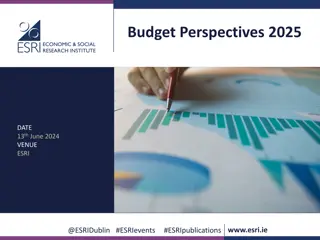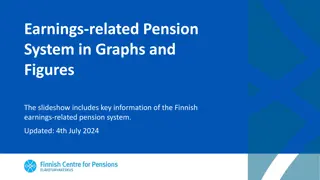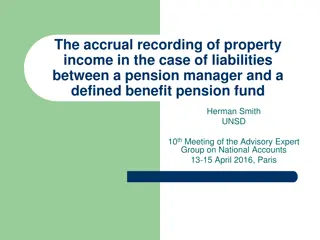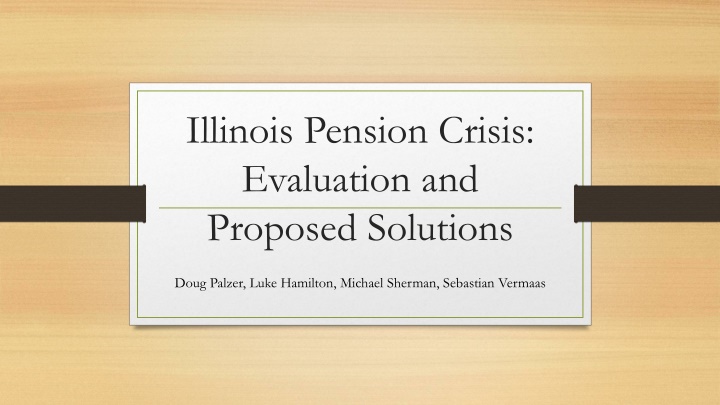
Evaluating Illinois Pension Crisis and Proposed Solutions
Gain insights into the Illinois pension crisis through an evaluation of underfunding, improper valuations, and recent policy measures. Discover the impact of debt burden, actuarial required contributions, and pension obligations on essential state services. Learn about the advantages of GASB 67 and 68 while exploring the factors contributing to the growth in unfunded liabilities. Understand the challenges with contributions and proposed solutions in the current budgetary and political environment.
Download Presentation

Please find below an Image/Link to download the presentation.
The content on the website is provided AS IS for your information and personal use only. It may not be sold, licensed, or shared on other websites without obtaining consent from the author. If you encounter any issues during the download, it is possible that the publisher has removed the file from their server.
You are allowed to download the files provided on this website for personal or commercial use, subject to the condition that they are used lawfully. All files are the property of their respective owners.
The content on the website is provided AS IS for your information and personal use only. It may not be sold, licensed, or shared on other websites without obtaining consent from the author.
E N D
Presentation Transcript
Illinois Pension Crisis: Evaluation and Proposed Solutions Doug Palzer, Luke Hamilton, Michael Sherman, Sebastian Vermaas
Goals Evaluate the current funding crisis and weigh potential solutions Discuss the effects of 1. Underfunding and lack of contributions 2. Improper valuations and actuarial assumptions Recent policy measures to attempt a resurge in funding Public Acts 96-0899, 96-1495, 98-0622, 98-0599 Propose solutions given current budgetary issues and political environment
Debt Burden Illinois has a long-standing history of underfunding its pension programs Lack of contributions has resulted in an actuarial accrued liability of $111 billion Per taxpayer: $45,000 Funding ratio of <40%
Actuarial Required Contribution Unlike relatively well-funded states, Illinois has not adhered to a sound ARC Illinois Chicago
Pension Obligations as % of Revenue Growing ARC will impair the ability to fund Essential State Services As a result, the State is forced to cut back on other services.
Advantages of GASB 67, 68 Holds state and local governments to more accurate representations of actuarial valuations Clearer picture of the State s fiduciary net position Allows for more comprehensive measure of cost/benefit analysis
The two biggest factors contributing the growth in Unfunded Liability: Poor contributions and poor investment returns
Contributions The State has failed to contribute equal to any accurate ARC or properly account for growth in Unfunded Liabilities Granted, the State also does not have strong ability to generate higher income Therefore, it is principally in the hands of state actuaries and fund managers to make up for the increasing liability- by means of over reporting assets or assuming unrealistic returns
ARC cont. Factors that contribute to the Actuarial Required Contribution 1. Benefit Accruals 2. Benefit Withdrawals 3. Mortality 4. Return on Assets 5. Entitlements (Multiplier) 6. Employer Contribution Schedule 7. Employee Contribution Schedule
Return on Assets Investment Returns do perform relatively well, but recessionary times are not accounted for in current straight-line method Six sigma crises happen much more often than in previous centuries Specifically, the financial crisis of 2008 changed the way we must think about computing our ROA assumptions Evaluate systemic risk inherent in liquidation of major state assets
Solution Options Increase Taxes Cut Spending Move new workers to a defined contribution plan Moving all workers to a DC plan Cut Benefits Raise contributions
Viable Solutions Attempts have been made to move new workers into a defined contribution plan Tier I and Tier II Programs Only danger may be less employee contributions into current fund, drastically impairing the ability to pay off the unfunded liability Raise Taxes Return to 5% flat income tax May result in further outflows from Illinois
Amendment Proposal Our proposal attempts to meet bipartisan lines while also offering a path to solvency 1. Implement a Progressive Tax (2-7%) that will increase State revenues sufficiently to pay the unfunded liability 2. Redefine the Pension Benefit Clause of the Illinois State Constitution, in order to readjust COLA s accurately to inflation 3. Add Term Limits to the General Assembly
The Bankruptcy Clause The Proceeding to Protect Essential State Actions Add article to the Federal Bankruptcy Code U.S. Constitution grants Congress the right to enact uniform laws on the subject of bankruptcies throughout the United States Would only pertain to the insolvency of specific State pension funds Arguments against include setting precedent for the default on other State debts May be deemed Unconstitutional due to the Obligation of Contract clause in Article 1, Section 10, clause 1 No state shall pass any Law impairing the Obligation of Contracts
Public Act 98-0599 Passage of such an amendment would allow for the implementation of pension reform plans such as Public Act 98-0599 This would allow for plans that renegotiate current pension benefits in order to return to healthy funded ratios within 50 years Would allow for the placement of salary caps to reduce long term liabilities Arguments against include moral obligation to fulfillment of pension contracts, as well as the viability of the ramp program Perpetuates the issue of moving the obligation of payments toward the unfunded liability on later generations
Conclusion Need for increased revenue base and decreased expenses More transparency with respect to state fiduciary responsibility More accurate actuarial evaluation of risk exposure (ROA, Liquidity of Assets, Impact of market saturation) Foster greater awareness of the scope of the crisis Garner bipartisan support for political action
References The Civic Federation Illinois Policy Institute Truth in Accounting Reboot Illinois IL CAFR Federal Reserve of Chicago Manhattan Institute for Policy Research

